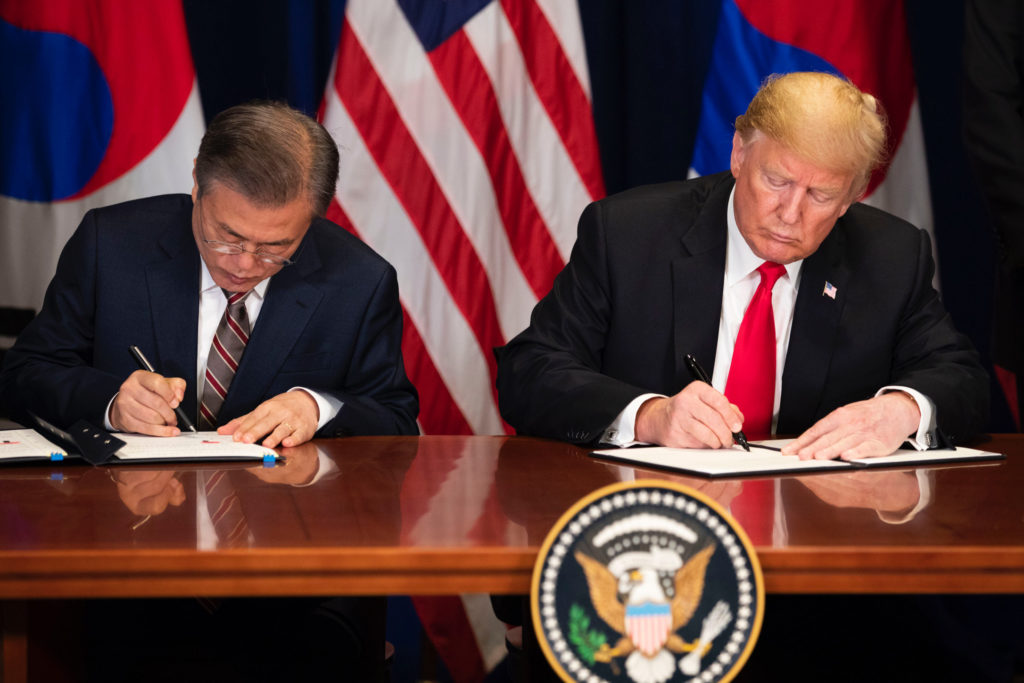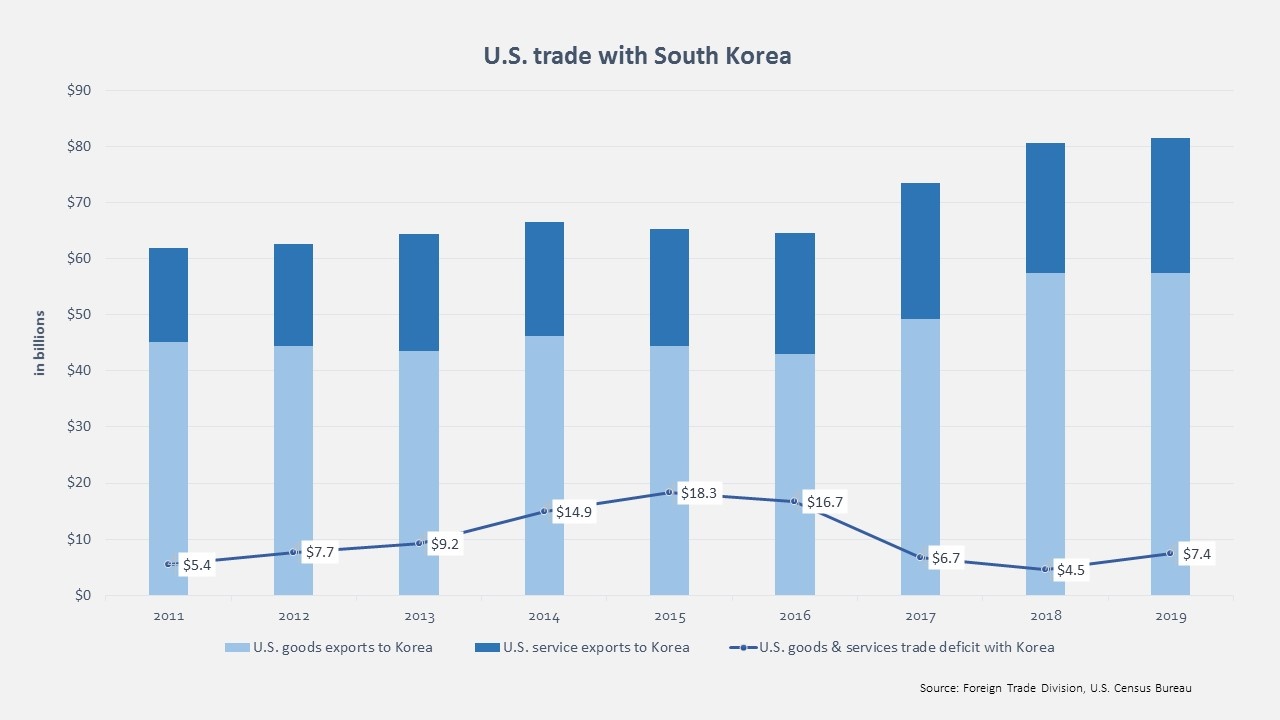The Peninsula
The Real Record of the KORUS FTA

By Phil Eskeland
“As Vice President… [Joe Biden] backed the horrendous South Korea trade deal, which took many jobs from our country which I reversed and made a great deal for our country.”
Remarks of President Donald J. Trump upon accepting the Republican nomination for President, August 27, 2020 (President’s extemporaneous remarks in italics)
Last Thursday night, President Donald Trump accepted the Republican nomination for a second term as President of the United States. Every speech at political events contains embellishments, and this one was no exception. President Trump’s remarks returned to the main themes that have animated his political beliefs for most of his lifetime, particularly on implementing his vision of fair and reciprocal trade. In his list of alleged “blunders” committed by Vice President Joe Biden over the previous 47 years of public service, President Trump not surprisingly focused on four trade policy matters that represented the bipartisan and establishment consensus at the time – Biden’s votes, as a U.S. Senator, for the North American Free Trade Agreement (NAFTA) and China’s accession into the World Trade Organization (WTO) and the Obama-Biden Administration’s actions on negotiating the Trans Pacific Partnership (TPP) and passing the Korea-U.S. Free Trade Agreement (KORUS FTA) into law.
President Trump generally stuck to his prepared remarks throughout most of his acceptance speech, and only occasionally adlibbed, usually for emphasis. However, the President improvised the last section of the sentence dealing with KORUS in which he said he “reversed” the trade agreement and then “made a great deal for our country.” Yet, most of the underlying text of the original KORUS FTA remains unchanged. In 2018, the Trump Administration negotiated a handful of modest adjustments to the agreement, most notably an extension of the 25 percent U.S. tariff on imported trucks from Korea for another 20 years and allowing more U.S. motor vehicles and parts to enter South Korea based on meeting U.S. environmental and safety standards. Separate from the minor modifications to KORUS, Korea also agreed to voluntarily limit its exports of steel to the United States to avoid higher American import duties. Since the adoption of this side agreement, the volume of Korean steel exports to the U.S. has declined by 31 percent or by $523 million in value, but possibly at a cost of higher prices and increased scarcity of supply to U.S. steel-using manufacturers.
Despite this difference on steel, the overall trend in the U.S.-Korea trade relationship continued to flourish after the implementation of the KORUS FTA in 2012, with most years showing a growth in U.S. exports of both merchandise goods and services to Korea. At the same time, the bilateral trade deficit between the U.S. and South Korea declined to a low of $4.5 billion in 2018 after initial increases due to factors unrelated to KORUS, including falling agricultural commodity prices. If one continues to use the metric from the Department of Commerce that every $1 billion in U.S. exports supports approximately 5,700 American jobs, the nearly $20 billion growth in U.S. exports to South Korea since 2012 created or supported approximately 112,000 U.S. jobs, beating the Obama Administration’s prediction that KORUS would support 70,000 U.S. jobs in 10 years. This is on top of the $36.6 billion in new investment from Korea that has come into the United States since 2012 to employ at least 58,000 Americans. The results of KORUS are precisely the opposite of what was said last Thursday night because the facts show the accord produced more U.S. exports and jobs as intended.
After the Trump Administration’s “great deal” with Korea to modestly modify KORUS in 2018, the bilateral goods and services trade deficit crept back up to $7.4 billion in 2019. This is not the Administration’s fault because U.S. goods and services exports to Korea grew in 2019. However, American consumers continued to purchase Korean products at a higher rate, ranging from advanced technology products, such as Samsung smartphones, to higher-value auto imports from Korea, such as the Hyundai Genesis luxury car or Kia’s Niro electric/hybrid vehicles. The larger bilateral U.S.-Republic of Korea (ROK) trade deficit serves as another reminder that using trade policy as the sole tool to lower the trade deficit is bound to fail because larger macro-economic forces are at play. The U.S. should continue to promote exports and combat illegal trade practices, but the impetus for these policies should not be to reduce the trade deficit because that is a fools-errand. As the independent Congressional Budget Office (CEO) tactfully concluded in its 2000 report to Congress on the causes and consequences of trade deficits “…if one nevertheless wanted to reduce the (trade) deficit, trade policy would not be a good way to accomplish that goal.” Would the U.S.-ROK trade deficit be even higher without the President’s action in 2018? Perhaps, but no one can accurately predict the alternative outcome.

As the presidential campaign continues, President Trump and his team should drop the hyperbolic language from the past about the KORUS FTA, closely analyze the updated trade statistics to modify the rhetoric, and use this agreement as a model to encourage other countries to enter trade deals with the United States. The facts show the KORUS FTA has worked as intended. Instead, the focus should be on the future efforts to knock down barriers to trade so that the U.S. can return to historically high levels of export growth once the global pandemic is over.
Phil Eskeland is the former Executive Director of KEI and Policy Consultant at Gammon & Grange, P.C. The views expressed here are the author’s alone.
Image from Wikimedia Commons.
